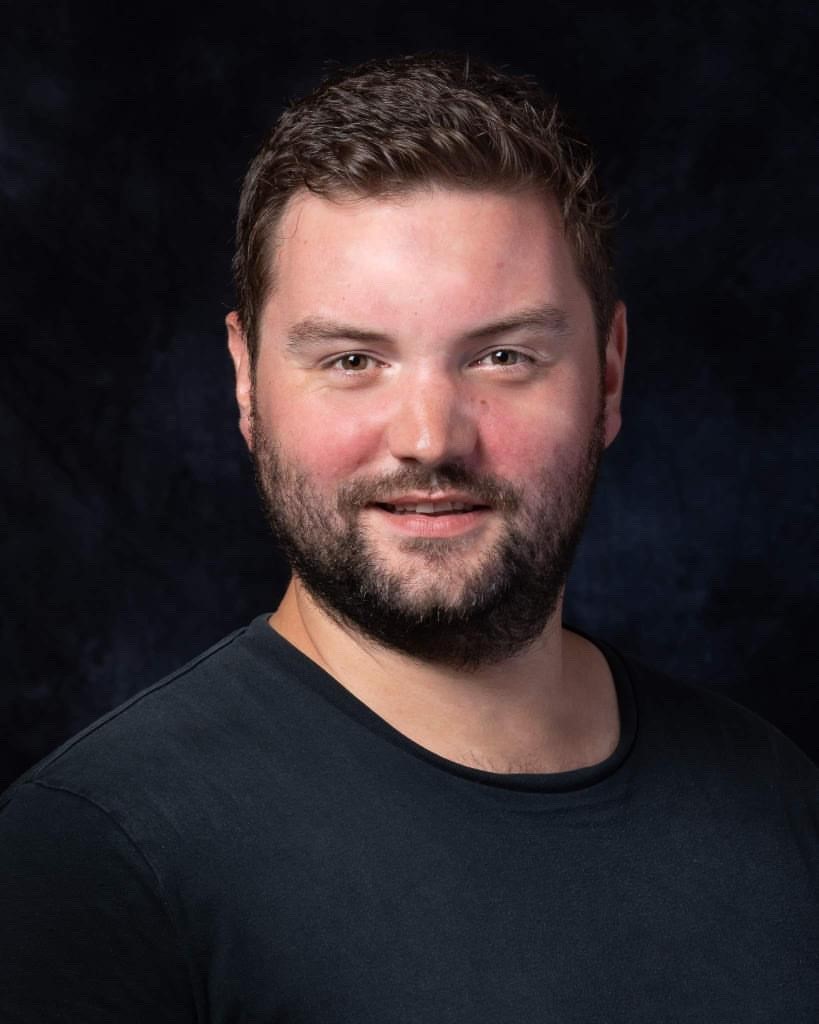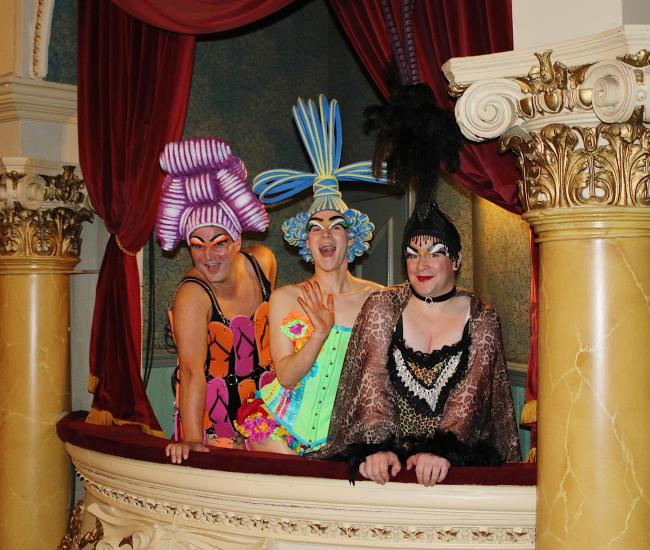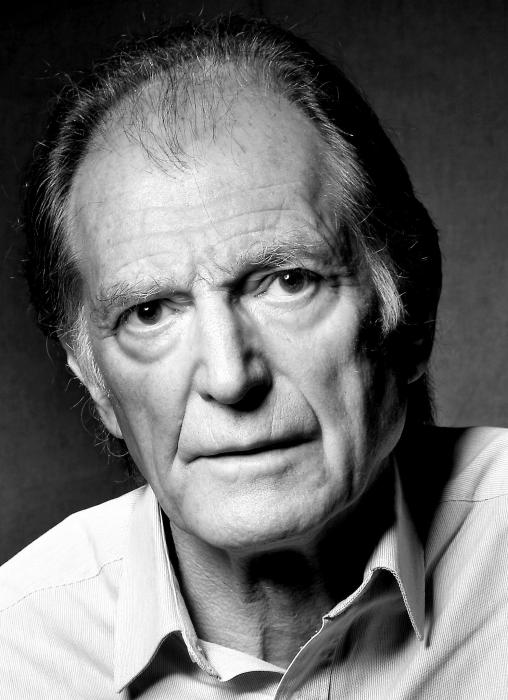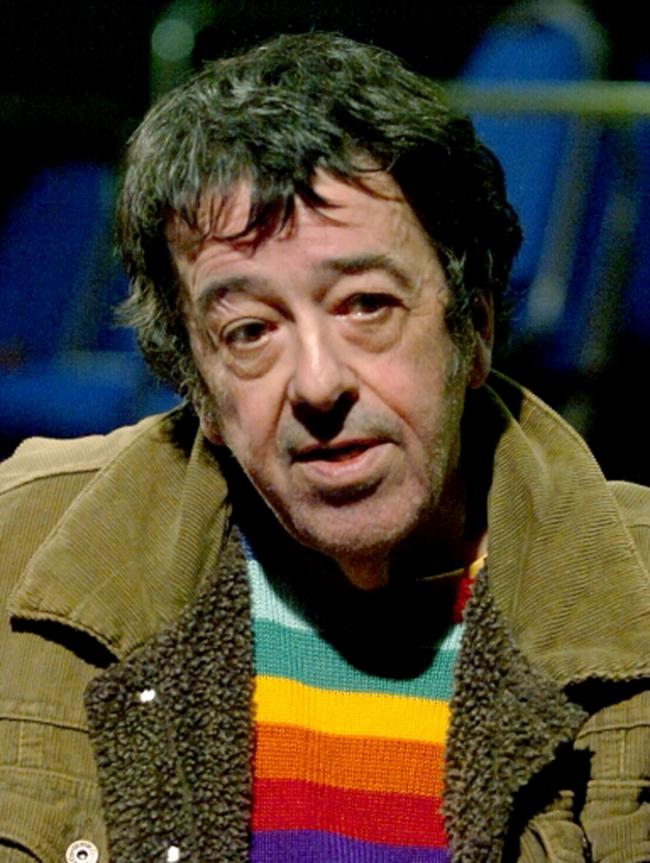
Why did you take on the role of chair for Theatre @41, Joe?
“As we were approaching last year’s annual general meeting, our incumbent chair, Jim Welsman, decided to step down and I agreed to take on the chair as a temporary role. Very quickly it became clear that there was a big job to do with the charity from an operational and developmental point of view.
“Theatre has always been my passion and I realised that I had an opportunity to lead a team and make a difference to this incredible building and charity.”
What does Monkgate mean to you?
“Creativity. Every experience I’ve had with Monkgate has been a creative one, from the very first moment I stepped foot in there with the University of York St John, to all the rehearsals I’ve been part of and then finally as part of the board of trustees. Creativity has been the one constant that remains.”
York theatre-goers will know you from major roles in myriad productions but do you have any experience of theatre behind the scenes too?
“Surprisingly, I have lots of experience behind the scenes. I’ve stage-managed productions and directed many musicals and plays. My favourite musical was The Phantom Of The Opera, which I staged in 2014 – my favourite show and a great success.
“I’ve also worked professionally at York Theatre Royal and Square Chapel Centre for the Arts, in Halifax, in marketing and administration, so I have lots of experience and knowledge working for charitable organisations.
“Most notably, I worked at the Theatre Royal during their capital renovation project and some of their other major events, such as The Railway Children at the National Railway Museum, The York Mystery Plays in the Museum Gardens and their season in the round – I helped with the production of shows and front of house.
“For a long time, theatre was my whole life, having studied performance theatre at York St John, concentrating on live art and acting/directing.”
What challenges have you faced since taking on the role of chair?
“The biggest challenge is running the charity with a full-time job too. The charity in itself has a heavy workload which impacts on people’s time. This is why it’s really important that we build our volunteer community so they can be part of the developments and to ensure that the charity is running effectively.”

How did the board of trustees come together and how is it working?
“With a lot of hard work. Three of us were existing members of the previous board and everyone else was a new recruit.
“Because the profile of Theatre@41 is not as big as we would like, there was a challenge getting people to, firstly, know who we are and, secondly, understand why or how they could make a difference. Through a lot of networking, we have finally found a cohort of people who, day after day, make a difference to this charity.”
Who is serving on the board?
“Myself as chair, looking after all the governance of the charity and leading the board to achieve their short and long-term goals.
“Joanna Hird and Susannah Baines are joint secretaries; Joanna is responsible for administration and Susannah is responsible for our membership, though they do cross over a lot!
“Philip Barton is our treasurer, Jack Hooper is our marketing, branding and communications trustee; Alan Park is responsible for fundraising and business development; Kaeli Wishart is a new addition, responsible for our volunteer strategy, and Emma Godivala, of York Gin, is a trustee too.”
What has the new board achieved already to fill you with pride?
“When you’re part of a project, it’s really hard to see the developments that you’ve made. So, when we wrote the annual report this year, I was astounded by how much we’ve achieved in such a short time. I’m proud of everything that we do as a board.
“Most of all, I’m proud of the team we have become and how we continue to operate. Achieving something of this magnitude is impossible with just one person. It can’t be done. You have to have an effective and engaged team… which we do.”

Game Of Thrones star David Bradley, comedian Rosie Jones, actors Karen Henthorn and John McArdle, former chairman Jim Welsman and founder John Cooper’s daughter, Felicity, became patrons in May. What do you hope they will bring to Theatre @41?
“I think the primary purpose of high-profile patrons is about raising our own profile. Part of our five-year strategy is to build the awareness of our charity and building. We face a disadvantage as we’re physically hidden from passers-by and then, secondly, we aren’t at the top of people’s minds when it comes to theatre spaces in York.
“We don’t want to be number one; this isn’t about stealing the audience from other venues, but we do want to be in people’s consideration when they’re thinking about theatre experiences, either as an audience member or as a hirer.
“We’re hoping that having patrons who are not only high profile but actively involved in our theatre will help raise our profile and attract people into our building.”
What do you want to achieve in the next year?
“Most importantly, we hope to re-open successfully and start to build our hires again to ensure the financial stability of the charity. That is our first goal.
“After that, we’re focusing on creating a comprehensive pack of governing policies to ensure that we’re operationally effective; building a bank of volunteers to help us with the day-to-day running of the charity and venue; building a brand identity to make sure our name lasts long into the future; looking at our artistic offer and raising funds for our roof. These are just a few of the many tasks we have to achieve.”
What would you like the brand identity of Theatre @41 Monkgate to be?
“We want our identity to exhibit creativity. Our tagline is ‘Just Add Imagination’ and our identity should reflect that. However, we also want it to incorporate our history. We shouldn’t forget where we have come from and we have a great story to tell.”
How has the Covid-19 lockdown affected your plans?
“Aside from our theatre being closed, lockdown has, in a strange way, let us to concentrate on a lot of activities that we were struggling to complete when our building was open. So, actually, in one way it has positively affected our plans and given us the breathing space we needed to carry on with building the foundations of this incredible charity.”

What are the practical questions facing Theatre @41 in relation to re-opening?
“I think that the lack of direction from the Government on re-opening is slightly frustrating as it isn’t allowing for any future planning. Though we completely understand these are unprecedented times and I’m sure there is a lot the Government are working through.
“Operationally, there is probably less impact for our building due to the flexibility of seating and the fact it has a natural one-way system we can implement very quickly.
“I think our biggest challenge will be having hirers back in the building. At the moment, as we understand, amateur performance is still not advised to go ahead, which means that for the foreseeable future we will have no income. Like other businesses and charities though, we must have a think about how we adapt to this in the new world.”
Once the Government says “Yes” to indoor performances, is there any viable possibility of re-opening with reduced-capacity social distancing?
“We haven’t done the calculations as yet. However, working on an average audience size, I don’t foresee there being any issue with seating arrangements.”
But is it more practical to stay closed until Theatre @41 can re-open at full capacity?
“Not really. We really need to be open to continue bringing in money to our charity. We don’t receive any regular funding from bodies to help with our operating costs, so being open would help with our cash flow.”
Given the need to address the upkeep of the building, what makes Theatre @41 worth fighting for?
“No other theatre in York offers what we offer. When a hirer enters our building, they’re allowed to take over the whole space and have full creative control, from rehearsal rooms to the black box studio.

“Back in 2016 and 2018 we had The Guild Of Misrule bring Alexander Flanagan-Wright’s immersive production of The Great Gatsby to us. They took over the entire building and every room was transformed into a 1920s’ setting so that the audience stepped back in time as soon as they came through the front door.
“We’re also the perfect size for local companies to stage new or daring shows and not take too much of a financial risk. Our space allows companies to produce well-known pieces in new and exciting ways and, finally, we’re exactly what York is lacking: a Fringe venue.
“Possibilities are endless in our building, whereas in other theatres there may be a lot more restriction.”
What does the board see as the priority with the building’s maintenance?
“The biggest priority is to fix the roof. There are other tasks to undertake but our biggest priority is the roof, for which we have already started fundraising.”
How is the proposal to mark the legacy of 41 Monkgate founder John Cooper progressing?
“We obviously unveiled a plaque a few years ago and had a brown sign erected outside our building for the John Cooper Studio. The next step is to include the memory of John and immortalise him in the fabric of our brand identity and story-telling.”
Amid the uncertainty brought about by the Coronavirus pandemic, why is the arts scene so important in York?
“In a city so small it absolutely amazes me that we can house five major theatres and one large concert venue, plus support all of the many different groups that produce in York.
“We are so lucky that we have such a diverse group of arts-makers and they are all, in the majority, successful. From large-scale musicals to Shakespeare and everything in between, you’d be hard pushed to find another place like this outside of London.
“However, there are a few things that aren’t catered for that I would like to experiment with and expand the horizons in York. Watch this space!”
